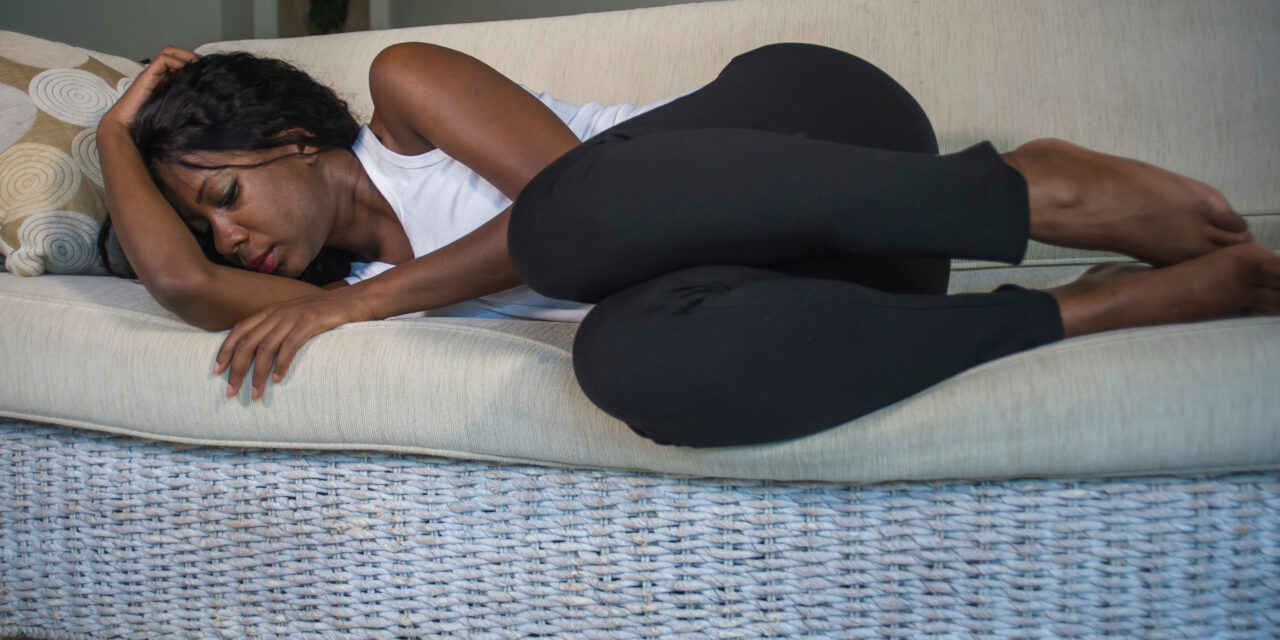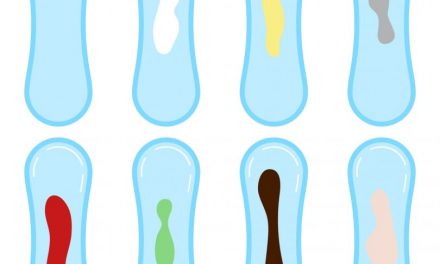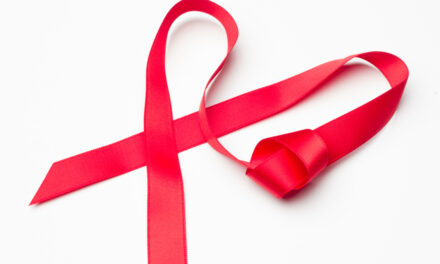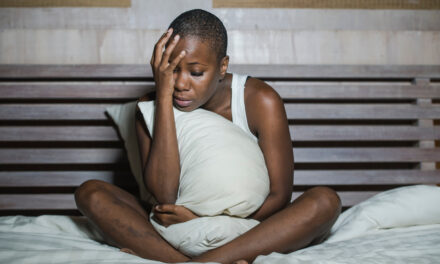The look on her face was one I couldn’t recollect seeing before. I usually paid attention to her frown lines when she was angry or worried. They had a way of letting me know whether she was getting angrier or more worried or vice versa; but that night when she looked me in the eyes and asked me those questions, it looked like she was feeling both emotions at the same time.
“Did any man touch you?” She asked. Still confused and panicking, I shook my head in the negative. “Did anyone put their hands in your panty?” She asked again. I was about to only shake my head again but I found myself saying no simultaneously, as though my voice knew better than to stay idle. It was then that I saw the frown lines disappear, followed by a slow sigh of relief.
I was staring at my relieved mum whilst still feeling confused about the unprovoked blood streaming down my thighs from my vagina. As if sensing my confusion, she told me I was fine and that it was something that happens to women every month. She told me I was a woman now and proceeded into the bedroom. She came back with a nicely cut piece of old African print fabric and beckoned me over to her side. Whilst still standing with my thighs covered in blood, she gently folded the rectangular fabric she had brought with her in horizontal layers and said “Henceforth, you fold it like this and put it in your panty after taking a bath. Wash it when you take a bath and dry it. I will give you another one in the evening” I was twelve years old and it was 10 pm.
That day was the first Saturday of September and the busiest day in Cape Coast. It was the crowning day of the week-long Oguaa Fetu Afahye – the biggest traditional festival of the people of Oguaa (Cape Coast). The morning and afternoon of this day sees nothing but a rich display of culture and royalty in the most vibrant and colourful ways. The day’s procession featuring beautiful intricate war chants and dances by the Asafo (clan warriors), the mystical rhythmic movements of traditional priests and priestesses in trance, the energetic and captivating cultural dance performances by cultural troupes, queens and queen mothers, chiefs and the king, clothed in breath-taking kente (royal fabric) and regal jewellery being carried in their palanquins through the town, is a sight to behold. People from all over the world and other parts of the country travel to Cape Coast to join the celebration.
Children in Cape Coast would usually be taken to the street to watch the procession as it passes and then be taken back home but that year, twelve-year-old me decided it was time I fully participated. I wasn’t going to be a spectator anymore. I begged my mum to let me spend the weekend at our family house where my older cousins lived. They took me out to join the procession all the way to the durbar grounds and brought me back home afterwards. I was happy and satisfied until later in the evening when they all dressed up and sneaked out to party – without me!
Feeling betrayed, I complained to my uncles but to my disappointment, they told me partying at night was for adults only but I was determined to go out too, so I snuck out of the house after my uncles had gone to sleep. We lived close to the city centre so it was easy to walk around and observe people have fun in the many small bars that usually spring up by the roadsides during the festivities. I found my way to London Bridge; Cape Coast’s second most popular landmark. The ‘street jams’ happening there was loud and exciting. Young men and women in their festivities clothes which they had most likely saved up money for months to buy, danced their hearts out.
I remember sitting on the stairs of the Agric Development Bank about 5 metres from the crowd, admiring young women in colourful braids that stood out and showed brightly in the air whenever they jumped or twirled, and wondering when I’d be old enough to wear my hair like that or party freely like that. It was in this state of admiration and deep thinking that I felt something slightly warm wet my panty. My first thought was that I had probably sat in water, but I hadn’t. I simply shifted my buttocks to the right and resumed watching the adults get drunk and party.
As if to establish dominance and let me know I can’t simply ignore it, I felt another wet discharge and this time I thought I had peed myself. It couldn’t be pee; I had stopped wetting the bed years ago. I don’t remember the colour of my clothes that day but it was a skirt and blouse. I curiously walked round the corner of the bank to the edge of the big gutter that went through London bridge, through to Anaafo where boys play football in it, and into the ocean. It was at the edge of this wide multipurpose gutter that I pulled up my skirt and saw my first every period blood.
There I was, scared, confused and suddenly feeling lonely in a small corner at a place filled with loud music and happy people — adult people. Nobody had told me about periods. I grew up with just my dad and my mum. I never saw my mum have her period, never seen any other women have their period, never heard about it from my friends or cousins. My exciting planned evening of solo adventure suddenly came to an end. I decided to do the 1.2km walk to go to the only person I trusted to help me — my sweet kind mother.
And so there we both were at 10pm with her showing me how to fold a cloth to absorb my period blood, and me learning that this will happen to me every month because I’m a woman. That was all the period knowledge that she passed on to me. It seemed then that that was all I needed to know: you’re a woman and so you’ll bleed every month. It made sense to my 12yr old self, for a long while. I would later go on to stop using the cloth and use toilet rolls (t’roll) instead because I didn’t like how the gutter behind the bathroom (which opened right into the one by the main road) would look all bloody whenever I washed the cloth, such that passers-by would know whoever was taking a bath was on her period, and later to sanitary pads.
I am tempted to tell you about how my curiosity about how menstruation really started, and how I became a period activist but this article is getting long and we don’t want to be bored right? Let’s aim for a part two, yes? Do I hear a yes? Yeah, let’s do it!






Thanks for sharing ❤😊
This is awesome!!! Kudos